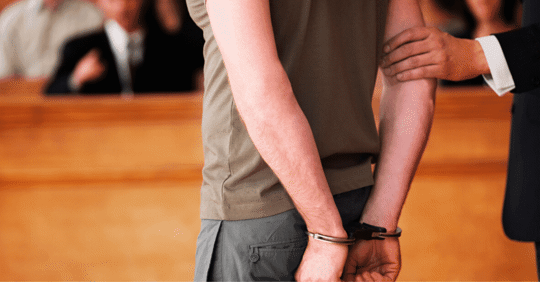In Georgia, as is the case across the United States, the law classifies crime in one of two broad categories: felonies and misdemeanors. A person facing criminal charges, and even the public more generally, needs to have a basic understanding of what is meant by felony charges in Georgia.
While misdemeanors are simpler to understand, they also come with aggravating factors that can turn the charge into a felony. Some of the most serious crimes carry with them felony charges, as well as significant penalties that can impact a person’s entire life.
Below, we’ll help you understand a few of the vital aspects of felony charges and what it means for your future. We’ll explain the length of sentences associated with felonies, how the judge classifies the charge, and what you can do if you find yourself in severe legal trouble.
Length of Sentence and Felonies in Georgia
Georgia law identifies felonies based on the severity of the crime and the length of a potential sentence associated with your case. If a charge carries the possibility of more than a year incarcerated, it is most often a felony. On the other hand, if a charge carries a sentence of less than a year, it is a misdemeanor.
Sentencing for a felony requires the offender to spend his or her time in prison. Misdemeanors often result in sentencing in a local jail. The change in location is associated with the serious nature of the crime. Felonies often involve the following offenses:
- Homicide, attempted homicide, and other acts of violence
- Arson, burglary, robbery, or other criminal damage to property
- Child pornography or child abuse
- Assisting in a felony
- Human trafficking or similar charges
- Money laundering and other white-collar crimes
Some misdemeanors may receive an additional review, and the charge can change to a felony if specific aggravating factors play a role in the arrest. For instance, a misdemeanor DUI can become a felony if the individual has prior DUI convictions or if they are driving under the influence with a minor in the vehicle. Also, a DUI hit-and-run can elevate to a felony if significant injuries occur.
Judicial Discretion in Sentencing and Charge Classification
Judges in Georgia possess discretion when it comes to sentencing. In some situations, a judge may classify a felony as a lesser charge if it is the offender’s first time in legal trouble. The judge can also look at other factors such as past behavior, character testimony, and more.
Sometimes, the law refers to crimes that fall within this type of category as "wobblers." The crime may be punishable with felony or misdemeanor sentences depending on the decisions of the judge in the case. Not only do these often apply to first offenders, but minors in legal trouble may be on the receiving end of this discretion.
Classification of Felonies
Georgia law differs from other areas of the United States. Georgia statutes do not provide for classifications of felonies. In other words, there is nothing like a class one or class A felony in Georgia. Georgia imposes the sentences associated with a felony in criminal proceedings on a true case-by-case basis.
The judge and jury will consider the specific circumstances associated with the charge and determine the severity and sentencing applicable to the situation. This type of case allows you to present yourself in a positive light to try and receive lesser sentencing.
Protect Your Legal Interests After Felony Charges with an Atlanta Criminal Defense Lawyer
When facing felony charges, you are wise to schedule an initial consultation with an Atlanta criminal defense attorney immediately. You can schedule an appointment with a member of our dedicated legal team at Newman & Allen to discuss what rights and options you have.
There is no attorney fee charged for an initial consultation and preliminary case evaluation with a qualified, experienced, tenacious criminal defense attorney from the firm. We’ll work hard to help you build a strong defense and pursue the most favorable outcome possible.
Call us today at (404) 471-3177 to speak with someone from our firm about your case.

